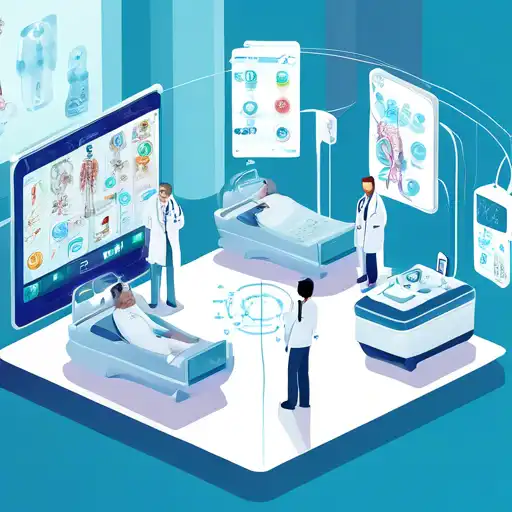Introduction to IoT in Healthcare
The integration of the Internet of Things (IoT) into healthcare is transforming the industry in unprecedented ways. By enabling devices to collect, analyze, and transmit data in real-time, IoT technologies are improving patient outcomes, reducing costs, and enhancing the efficiency of healthcare services.
Key Benefits of IoT in Healthcare
IoT in healthcare offers numerous advantages, including:
- Remote patient monitoring, allowing for continuous care outside traditional clinical settings.
- Improved accuracy in diagnostics through advanced data analytics.
- Enhanced patient engagement and satisfaction by providing personalized care plans.
- Reduction in healthcare costs by minimizing unnecessary visits and optimizing resource allocation.
Examples of IoT Applications in Healthcare
Several innovative applications of IoT are making waves in the healthcare sector:
- Wearable devices that track vital signs and physical activity in real-time.
- Smart pills that monitor medication adherence and body responses.
- Connected inhalers for asthma patients to track usage and environmental triggers.
- Robotic surgeries that offer precision and reduce recovery times.
Challenges and Considerations
Despite its potential, the adoption of IoT in healthcare faces several challenges:
- Data security and privacy concerns due to the sensitive nature of health information.
- High initial costs and the need for infrastructure upgrades.
- Interoperability issues between different devices and systems.
- Regulatory and compliance hurdles across different regions.
The Future of IoT in Healthcare
The future of IoT in healthcare looks promising, with advancements in AI and machine learning further enhancing its capabilities. As technology evolves, we can expect more personalized and efficient healthcare solutions that cater to the needs of patients and providers alike.
For more insights into how technology is shaping the future of healthcare, explore our digital health trends section.
Conclusion
IoT in healthcare is indeed a game-changer, offering innovative solutions to age-old challenges. By embracing these technologies, the healthcare industry can achieve better outcomes, higher efficiency, and improved patient satisfaction. The journey is just beginning, and the possibilities are endless.
